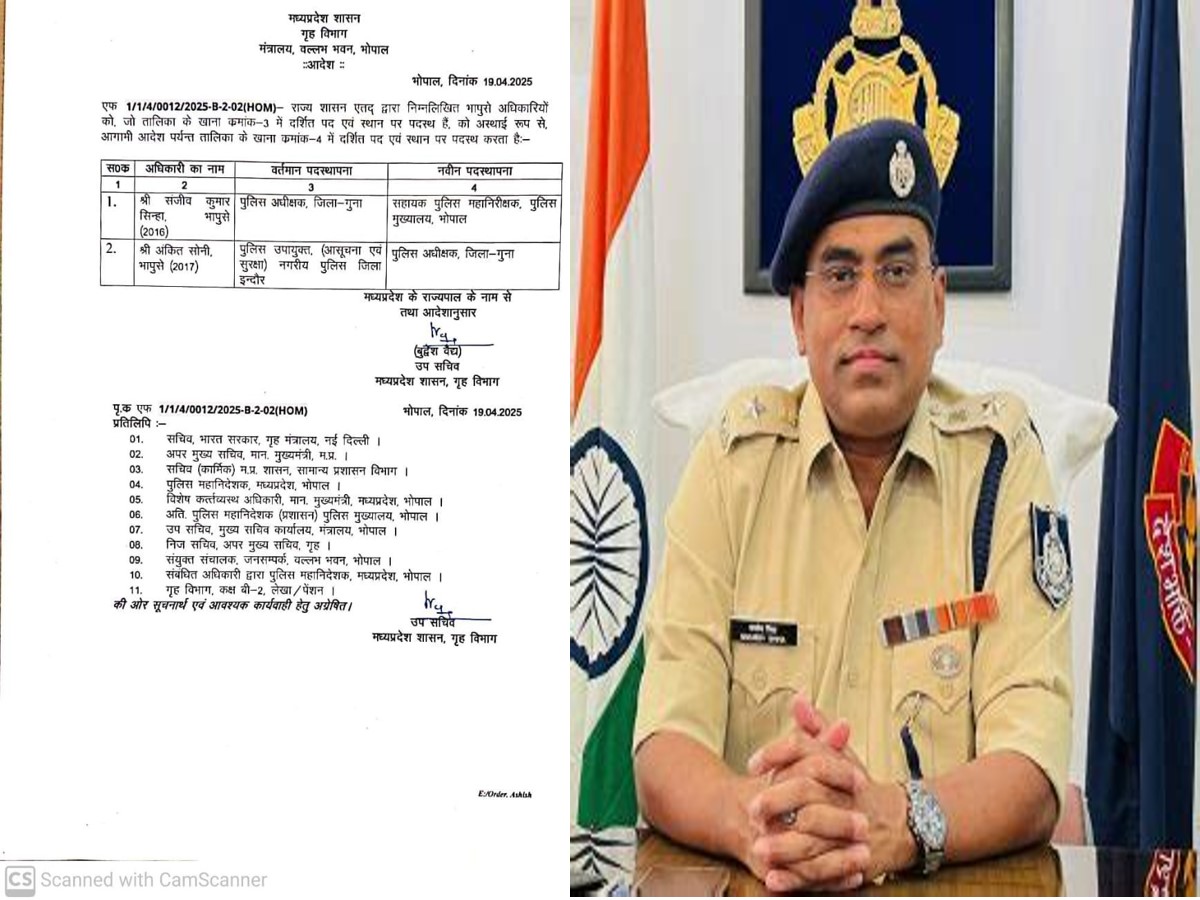Selective Policing? Provoked, Beaten & Blamed - BJP Leader Leads 'Unlawful' March in MP's Guna; 'Muslims Face Arrests'

Abdul Wasim Ansari, TwoCircles.net
Guna (Madhya Pradesh): A series of violent incidents over three days following Hanuman Jayanti have raised serious concerns about the safety of the Muslim community in Guna. Beginning with an alleged stone-pelting incident near the Medina Mosque on April 12, 2025, the situation escalated quickly that led to multiple FIRs.
However, arrests have allegedly "disproportionately" targeted Muslim residents, sparking accusations of "bias" and "selective enforcement".
The initial violence occurred when an "unauthorised" Hanuman Jayanti procession, which was led by BJP Councillor Omprakash "Gabbar" Kushwaha, passed near the Medina Mosque in Colonel Ganj. Provocative slogans were allegedly raised during that procession - leading to communal clashes.
Although the police initially acknowledged the unlawful nature of the event and the alleged inflammatory slogans, their focus soon appeared to shift. Later that night, Hindu organisations allegedly gathered outside Kotwali police station, demanding swift police action. Soon after, the police registered an FIR against five named Muslim individuals and 15-20 unidentified others under serious charges.
Subsequent arrests began that same night. Despite the communal nature of the conflict, the police allegedly only "targeted" Muslims in their response and filed cases against individuals like Vicky Pathan and Amin Khan but reportedly "ignored" alleged provocations and violence from the Hindu side.
On April 13, video footage surfaced showing Councillor Omprakash physically assaulting a Muslim youth and a woman. Despite the clear visual evidence, no immediate action was taken against him. Meanwhile, the police continued arresting Muslim individuals.
The situation worsened on April 14 when more than 500 people affiliated with Hindu organisations gathered at Hanuman Chowk, demanding bulldozers be deployed to demolish the homes of Muslim suspects.
The crowd then allegedly marched toward the Muslim-majority area of Colonel Ganj, where they reportedly threw stones and sticks at homes and harassed Muslim women. The police eventually dispersed the crowd but did not file any FIRs against those involved in the attack.
SP Sanjeev Sinha later addressed the media, stating that while the Hindu organisations had submitted a memorandum "peacefully", some elements had tried to provoke violence. He assured the people that the situation was under control and that appropriate action would be taken.
It was only after senior officers from Gwalior, including DIG Arvind Saxena, visited Guna that the police allegedly began acting against those involved on the Hindu side. They confirmed that several police personnel had been injured during the violence and would be rewarded for their bravery.
Following the DIG's visit, FIRs were filed against the BJP councillor and 10 others for their role in the procession and violence. New FIRs also named six individuals and listed 20-25 unnamed suspects involved in the April 14 attacks.
Despite these developments, the Muslim community in Guna continues to express fear and frustration. While several Muslims have been arrested, few Hindus allegedly involved in similar or more severe acts of violence have faced legal consequences.
Community leaders, including Yusuf Khan, president of the Tazia Committee, have criticised the police response as one-sided and discriminatory.
Khan, who witnessed the events, stated that the procession had initially remained peaceful until the councillor "redirected it back toward the mosque, where provocative slogans were raised".
"Stone-pelting began only after Kushwaha clashed with the police and disrupted the event," he said, adding that attempts to incite violence during religious processions had occurred in previous years, but this time, the effort seemed more "deliberate", with "outsiders" contributing to the unrest.
The arrest of 20 Muslim suspects has raised further questions about the fairness of the investigation. While the police claim that only those involved in the stone-pelting were charged, the alleged absence of action against Hindu participants has led to skepticism. Many believe that if authorities had acted impartially from the beginning, the escalation could have been prevented.
Though the police insist that calm has been restored, fear lingers in the Muslim community, which continues to feel vulnerable and marginalised by the justice system.
